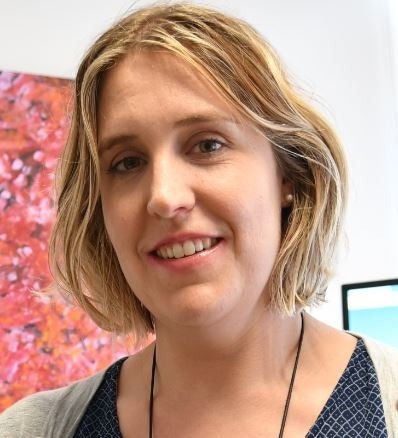Diet, nutrition, exercise advice and community programs are as important in rural and metropolitan settings as regional and remote areas, and peer support for health professionals can help deliver better results particularly if resources are limited.
 Associate Professor Annabelle Wilson, College of Medicine and Public Health, Flinders University. Image Credit: Flinders University
Associate Professor Annabelle Wilson, College of Medicine and Public Health, Flinders University. Image Credit: Flinders University
A new study from Monash University and Flinders University academics has identified what Australian dietitians and nutritionists need to do to make a stronger impact on Aboriginal and Torres Strait Islander health in the communities they serve.
The study of Australian health workers, published in the Journal of Human Nutrition and Dietetics (Association of UK Dietitians), looks at how a peer mentoring process, or ‘community of practice’, can support dietitians to work more effectively with Aboriginal and Torres Strait Islander peoples.
The results are based on in-depth interviews with 29 non-Indigenous nutritionists and dietitians working in diverse geographical locations over a six-year period.
“We gleaned some vital information about how dietitians working in Aboriginal and Torres Strait Islander health can be supported,” says Flinders University public health researcher and Advanced Accredited Practising Dietitian Associate Professor Annabelle Wilson.
The majority of dietitians in Australia are non-Aboriginal people, with only 32 individuals of more than 7500 full members and students self-identifying as Aboriginal and/or Torres Strait Islander in 2020, according to Dietitians Australia’s annual report.
Ensuring we include relevant professional development which we know works is an important way to support health professionals and contribute to improving Aboriginal and Torres Strait Islander health.”
Annabelle Wilson, Associate Professor, Flinders University
The study found six ways in which a community of practice supports the work of dietitians in Aboriginal and Torres Strait Islander health – fostering relationships, participant reflexivity, an awareness of one’s own practice, assurance and affirmation, connection and commitment, and confidence in new perspectives, skills and practices.
“The purpose of this study was to really drill down into the community of practice model – which we know works, and find out what elements of it work for whom, and under what conditions,” says Associate Professor Wilson.
“With our previous qualitative studies into this approach we were not able to do that, but realist evaluation, used in this study, enabled us to capture that detail.
“This will allow us to apply for funding to roll out this approach more widely, using the conditions in this study, which we know enable it to be successful in improving dietitians’ practice in Aboriginal and Torres Strait Islander health.”
The study concludes that these strategies can be used to recreate effective communities of practice in other settings.
“More responsive health professionals, able to manoeuvre confidently in intercultural spaces, are more likely to stay working in this area,” researchers say.
Source:
Journal reference:
Wilson, A., et al. (2022) A realist evaluation of a community of practice for dietitians and nutritionists working in Aboriginal and Torres Strait Islander health. Journal of Human Nutrition and Dietetics. doi.org/10.1111/jhn.13043.